The 9 Lies Everyone Believes About Dubai
A 7y resident pulls back the curtain on the most misunderstood city on Earth
Note : This article is the 6th in a series on how to significantly reduce your tax bill and maximize your freedom by moving abroad. Here are the first articles in the series :
Ah, Dubai. If there's one city that provokes heated and contrasting reactions, it's this one.
It's simple: I've never seen a place where people say so many stupid things and accumulate so many clichés.
And I understand why: before I went there, I had a lot of preconceived ideas about the city. In fact, the first time I went there, it was almost against my will: my girlfriend's best friend at the time was getting married there, and she really wanted us to go.
I remember my reaction: “Dubai? But what's there? Nothing! Why would anyone want to go there?”
So I forced myself to go to make her happy... and I found myself loving the city.
I had been living in London for just under three years, and, as a digital nomad, I was ready to move somewhere else: I was wondering where my next country of residence would be.
Dubai had piqued my curiosity, so I took advantage of a trip to Asia to stop there for a few days on the way there and back1 to explore the city a little more.
That convinced me, and in mid-2018, I decided to move there.
Given all the preconceived notions that circulate about it and the experience I've gained living here, I invite you to take a little dive into this city-state to dispel some of the most common myths.
It has to be said that the overwhelming majority of criticism comes from people who have never set foot there or, at best, spent ten days there and, as soon as they got back on the plane, took malicious pleasure in criticizing everything and anything.
We will see in particular that Dubai is an excellent example of a state that has perfectly understood its place in the modern world and its position in the jurisdiction market, which is to offer governance services at unbeatable value for money.
Cliché no. 1: Dubai's money comes from oil
First of all, it's important to understand what we mean by Dubai: it's a state in a federation of seven states called the United Arab Emirates.
And, this will probably surprise you, but oil today accounts for less than 1% of Dubai's GDP2 and has been a minority part of the state's economy for a long time3.
Within this federation, the state whose economy is still largely based on oil today is Abu Dhabi, which is the largest of the seven members, and Saudi Arabia's neighbor.
Has oil always represented a minority share of Dubai's economy?

No. Oil was indeed found in Dubai from 1966 onwards and, for a time, it represented a significant part of its economy (production peaked in 1991, before declining every year since), even though reserves represented only 4% of those of the emirates.
Dubai's citizens could have spent these millions on frivolous things and enjoyed life, but the ruler at the time, Rashid bin Saeed Al Maktoum, knew this would not last. As he declared at the time, "My grandfather rode a camel, my father rode a camel, I drive a Mercedes, my son drives a Land Rover, his son will drive a Land Rover, but his son will ride a camel."
What he meant was that oil wasn't going to last forever, and that the future had to be secured by investing in ambitious projects. In the past, Dubai's main source of income was pearl oyster fishing, and had been for over 200 years: at the beginning of the 20th century, this activity still accounted for 95% of Dubai's economy... and that of the Gulf countries4 !
This ancient industry was completely disrupted when the Japanese found a way to create pearls from oysters in large quantities in the late 1920s, instead of having to find them naturally.
Overnight, the source of money that had sustained an entire people dried up. This had a lasting effect on the standard of living of the people of Dubai, and left a lasting impression on their minds.
To avoid repeating the same scenario with oil, the sheikh took an absolutely incredible gamble, so much so that many people thought he was crazy at the time: he invested a huge portion of this oil money in a port - the Jebel Ali port - with, from the outset, the vision of making Dubai the main port in the Middle East.
It was a bold move. Not only was Dubai a village of oyster fishermen who had recently found themselves out of work, but it was located in a desert country in the middle of nothing: electricity didn't arrive until the 1960s. It wasn't at all clear that it would be worth building a port there... and that it would be of any use.
His son Mohammed, Dubai's current sheikh, even asked him "to stop this project before you bankrupt the whole country5 ", to which he replied: "I'm building this port now because there will come a time when you won't be able to afford it."
In the end, his gamble paid off, as today the port of Jebel Ali is the world's largest man-made port, Dubai's greatest financial asset, the Middle East's largest port by volume, the world's eleventh largest6 , and even... the US Navy's first overseas seaport7 !
The Sheikh embarked on many other projects that made Dubai what it is today, as did his son Maktoum (ruler from 1990 to 2006) and his other son Mohammed (ruler from 2006 to the present day), with the result that today Dubai is a major global financial center and one of the world's gold (accounting for 25% of world trade8 ) and diamond (third in the world9 ) trading capitals.
Another extremely important source of revenue is tourism.
In 2019 (just before the covid disruptions), Dubai was the fourth most visited city in the world behind Bangkok, Paris and London10 , with almost 16 million annual visitors.
In 2023, Euromonitor ranked Dubai as the third most visited city in the world11.
So the next time someone tells you that Dubai was built on oil alone, you can tell them it's not entirely untrue... but it's a lot more complicated than that.
There was one occasion, however, when oil from Dubai's rich uncle - Abu Dhabi, which holds 8% of the world's reserves - contributed directly to Dubai: during the 2008-2009 crisis, Dubai was on the verge of bankruptcy, as were several government-owned companies - including the one building the Burj Khalifa, the world's tallest tower.
To avert disaster, Abu Dhabi lent Dubai $20 billion12 , at a very competitive rate.
In this particular case, oil has indeed played an important role in the economy, but apart from that, its impact on Dubai's economy is peanuts.
Cliché no. 2: women's rights.
"In Dubai, women aren't allowed to drive!
How many times have I heard remarks like that?
I'll tell you right now, if you still believe that: not only are you confusing this with Saudi Arabia, but you're also confusing it with the Saudi Arabia of the past, since women have had the right to drive there since 2018.
In Dubai, women have always been able to drive (Saudi Arabia being the only country in the world to ban it 13 ). And, as I write this, nine of the government's thirty-two ministers are women.
And rather than give you just my male point of view, I share here the opinion of a Canadian friend, Isabelle, who currently lives in Dubai:
"I'm Isabelle, a physics engineer, and I'm lucky enough to live in Dubai. I can tell you that my first impression was that of a VIP resident.
As women, we have many advantages. For example, when we take the metro, there's a pink section reserved just for us.
When the metro is very busy, I can assure you that it's very pleasant to have a section where there are only women.
Secondly, when I walk around Dubai, I never feel insecure; on the contrary, it's always been very pleasant. I've never been stared at or felt spied on - it's a really safe place. And I'm someone who loves walking.
We can dress freely, always with respect for others, of course, but freely all the same.
At the water park, for example, you'll see some people wearing head-to-toe swimsuits, while others will be wearing light bikinis. Everyone cohabits smoothly, without animosity, with a great deal of respect and without a hint of judgment in their eyes either.
I immediately felt I was in an environment where women's clothing choices are respected, which is a very pleasant feeling.
Finally, I can tell you one last personal anecdote, which I found a little special... because I felt slightly uncomfortable about having used my feminine advantages. I went to an administrative center to get service and in the end, the service wasn't very good, because of the civil servant. To resolve the situation, I simply asked to be served by a woman. The official replied, 'yes, no problem,' since it's a woman's right in Dubai to request service from another woman.
So I was able to change officials without any problem, and the service was much better, it was great.
What's amazing, finally, is that I feel Dubai is one of the places in the world where I've felt the most VIP as a woman."
Women sometimes ask me "yes, but is it okay to walk around without a veil? Can we wear a bikini on the beach?" This allows me to make a smooth transition to Western life here, and tolerance in general towards non-Muslim practices.
Cliché no. 3: you have to follow Muslim laws, you can't live Western-style
I'll keep it short. If Western-style living is important to you, just as it is to me, then, good news, Dubai is an ideal place.
Yes, you can drink. There are plenty of bars, restaurants and nightclubs where you can drink alcohol. You can easily order some online and have it delivered to your home14.
Yes, you can wear a bikini on the beach. Yes, you can have sex outside marriage, and of course no one is asking you to follow the principles of Islam.
You should know that until 2022, sex outside marriage was officially forbidden. But if you've been following all the articles on this Substack, you'll have understood that one of my core values is freedom... and I would never have come to live in Dubai if I didn't have this freedom to live my life as a Westerner.
When I went there in 2018, the ban was still officially in force, but after doing some research, I could see that nobody had a problem with it: before they were repealed, the old laws simply weren't enforced.
If there's one thing to understand about Dubai, it's that it's probably one of the places in the world where you have to read between the lines the most. There are many laws that seem completely archaic, but they are no longer applied, at least not on a large scale.
In my opinion, the Emiratis are probably one of the most tolerant people in the world.
This will undoubtedly make some people howl, especially those who criticize the human rights situation in the United Arab Emirates (more on this later), but we need to put things in context: we're talking about a Gulf country whose big neighbor, Saudi Arabia, until recently banned women from driving, and banned cinema and music from public spaces.
Dubai, on the other hand, is so open and tolerant that Saudis come here at weekends to indulge (much as they do on the Côte d'Azur, for those in the know). Homosexuality is officially forbidden, although in reality Dubai is a haven of freedom for gays in the Middle East.
So, while there is immense tolerance for non-Muslim customs - in terms of dress, partying and so on - there are also certain exceptions. But there are also certain rules to bear in mind.
The first is that no one is ever going to come and bother you as long as you don't cause a scandal in public. On the other hand, if you start flouting values that are important to the locals, you're likely to run into trouble. Here, those famous archaic laws, which are no longer applied, may eventually be enforced because you didn't understand what was meant between the lines.
However, it's important to understand that their requirements are nothing out of the ordinary.
For example, we've seen examples of couples arrested for making love on the beach15 . Well, I'm sorry, but in most countries, including France and the USA, it's forbidden: if you indulge in sexual acts in public, you're going to get arrested.
If you look at the evolution of laws in Dubai - as well as in the UAE Federation as a whole - you can see that change always goes in the same direction: to please its expatriate population, and Western expatriates in particular, because Dubai without its expatriate population would be absolutely nothing.
I'll come back to this notion in a moment.
Last but not least, Pope Francis visited the Emirates in early 2019, and even said mass for 170,000 Catholics in a stadium. He was the very first pope in the history of Christianity to visit a Gulf country16.
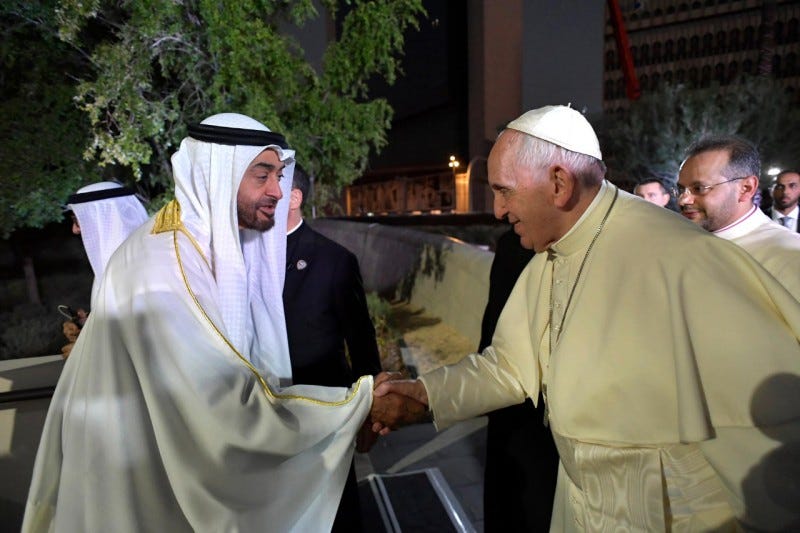
Cliché no. 4: you need a local sponsor to set up a business in Dubai
It's true, but there's one important nuance to be aware of: in the Emirates, there are 45 "free zones"17 .
What are free zones?
These are zones where Emirati laws either do not apply in full, or apply differently. The aim is to attract foreign investors and companies by offering them facilities and advantages, and even sets of laws with which they are more familiar.
For example, the DIFC free zone applies Anglo-Saxon (common law) law, in particular that of England 18 , and employs judges who have trained and operated in Great Britain and other Anglo-Saxon jurisdictions, enabling all companies preferring this system to operate in Dubai regardless.
Since 2011, it has even been possible for any company in the world to use the DIFC's services to resolve disputes, regardless of where it is incorporated or operates: all it takes is for two companies to specify this in their contract. And even if this is not specified in the contract, it is also possible for the parties to agree on the DIFC's jurisdiction when a dispute already exists.
So here we have an interesting example of a zone that dissociates its location from the laws that apply there, in two ways: by allowing the laws of another country to be used, and by allowing companies located in any country to use its services. We'll see another, even more radical example of such dissociation later on, which I believe will become increasingly common in the future.
But even without going that far, with 45 free zones, that's just about one free zone for every situation. And none of these free zones require you to have a sponsor: as a foreigner, you can be 100% owner of your company (and that's the solution I chose).
Then there are the mainland companies: all those that are not in a free zone.
Indeed, until recently, you had to have a sponsor who actually owned 51% of the shares (as in many countries in the region, and in Asia).
In practice, to get around this problem, all you had to do was call on companies specializing in this service. They would draw up a contract between you and the local sponsor, which basically stipulated that this person would receive a monthly or annual remuneration, and had strictly no voting rights in the company or any real share19.
But all that is no longer necessary, since a law was passed in 202120 , which basically says that you no longer need a sponsor to set up a company in mainland if your business falls into one of the many categories covered (over 1000!).
Cliché no. 5: there are slaves
We also hear this a lot: the Dubai towers were built by slaves, Pakistani and Indian workers who were promised an extraordinary life and ended up stuck here. When they arrive, their passports are confiscated, they are crammed into insalubrious accommodation, then forced to work for the rest of their lives with no hope of return.
As is often the case, the reality is a little more nuanced. First of all, let's be clear: the working conditions of construction workers are indeed probably one of the darkest spots in the Emirates.
But is it as bad as some people make out? I don't think so, because a crucial parameter is often overlooked.
I've had the opportunity to talk to a number of cab and Uber drivers, and here's their profile: men, generally Indian, Pakistani, Sri Lankan or of some other South Asian nationality.
This may come as a shock to us Westerners, but when we ask them about it, they explain that they've come here on their own (so far so good), while their families are back home and they see them once a year, sometimes every two years.
When asked "why don't you arrange for your family to come here?", they reply "it's not possible, the cost of living is too high, my wife wouldn't know what to do, my children have to go to school and I wouldn't be able to afford it...".
So yes, this situation is far from ideal.
But if you ask them, "Why did you come despite all these constraints? Why don't you want to go back home?", they'll answer, in the overwhelming majority of cases: "Because in Pakistan, India, Sri Lanka... I'd earn a lot less. I came here of my own free will, because it allows me to feed my family, to make sure my children are educated. I don't plan to stay here forever, but simply for a few years, and I'm making this sacrifice knowingly."
You can experience this for yourself: next time you go to Dubai, have a chat with the cab drivers.
When you look at the construction industry, you realize that most workers are exactly like this. Even if, indeed, there are people to whom false promises are made and whose passports are confiscated.
Let's talk about passport confiscation.

Officially, it's forbidden. In reality, this practice exists, and we need to understand where it comes from.
The basic problem is that in the Emirates, your visa is linked to your job, which means that if you lose your job, you lose your visa. And you have roughly one month to either find another job or go back home.
And the second basic problem is that it's the employers who pay for the visa, at a cost that generally varies from 750 to 1750 euros21.
So what do some employers do?
They ask for their employees' passports to make sure that they'll be working for them for at least a few months, so that their investment in the visa isn't lost.
I know someone who had this misfortune: a Vietnamese man who worked in a restaurant and had to hand over his passport to the boss. When he wanted to get it back because he wanted to stop working for him, the boss told him "no, I want you to continue working for me for a while".
What did this person do? She called the Vietnamese embassy, which called the boss back and told him in essence "Sir, this passport is the property of the Vietnamese government, we ask you to return it and if you don't, we will file a complaint with the police."
The boss complied immediately, and returned the passport.
So if someone whose passport has been confiscated goes to complain to the police or their embassy, they should legally be able to get it back.
However, aren't there situations where immigrant workers who don't speak English or Arabic and don't know their rights are being manipulated?
Perhaps, but that only represents a small proportion of the people who work in Dubai.
But let's go back to the question of working conditions, with these workers crammed into insalubrious housing or these cab drivers who see their families once a year or worse... Their plight clearly offends our Western sensibilities, but we must also put ourselves in their shoes.
I found a very interesting analysis of this situation in the documentary Free to Choose, directed by Nobel Prize-winning economist Milton Friedman.
Friedman visits a textile workshop in Hong Kong, where many people work under difficult conditions. He asks the question: "Are these working conditions ideal? No. "But are these people forced to do this?" No, they don't. They've chosen to come to Hong Kong, voluntarily, to work in notoriously difficult conditions, because it's a sacrifice they're making for their children and their descendants.
And he adds: "If today, you can judge the working conditions of these people as less than ideal, it's because your grandparents, your grandparents' grandparents and all the people who were there before them made the sacrifice that allows you today to have these comforts and social standards that are quite simply extraordinary.
It's because our grandparents' grandparents broke their backs in the fields, in the factories... that today we can enjoy far more comfortable material conditions.
Friedman concludes: "Who are you to criticize the choice of these people, who choose to make sacrifices in their soul and conscience to improve the prospects of their children and their descendants?"
So we must also ask ourselves about all those people who come to work in Dubai by choice, under difficult conditions, admittedly, but undoubtedly much less harsh than in their countries of origin. What would you do in their place?
Some will retort: "They can just come to France, Europe, the United States...". Well no, the overwhelming majority of these men and women would not be accepted in Western countries, their visas would be refused at the embassy, they would be turned back at the border and expelled from the country if they had entered illegally.
So what choice do they have? And who are you to criticize them and the governments that accept them?
The truth is that there's a global market for this type of worker, and they go to the countries that accept them under the best conditions. If they don't come to Western countries, it's because those countries don't accept them.
It's important to understand that the need to control borders and refuse the applications of most would-be immigrants is largely linked to the welfare state: it's to ensure that they make a significant contribution to the economy, rather than taking advantage of the welfare state without paying in return, that controls are so draconian.
A country like the Emirates can afford to accept immigrants en masse, with very light controls, because the government knows that they will contribute to the economy because they have no other choice and there is no welfare state to take advantage of.
So it's very easy for companies in the Emirates to hire labor from all over the world: all they have to do is get the person to sign an employment contract and pay for the visa, then as soon as the person has sent in their papers (including proof that they're not a criminal/terrorist) and taken their medical test22 , voila! She gets her visa and can live and work in the Emirates. The average time between the company's application and obtaining the visa that allows the employee to come to the Emirates for testing is five days23 (!). This is one of the fastest and most efficient processes in the world, and a significant advantage over Western countries, including the United States24.
Cliché no. 6: there's no nature in Dubai.
Certainly, if you like virgin forests, jungles and snow-capped mountains, the Emirates are not the place for you. But to say that there's no nature here... don't exaggerate.
Right next door, there's a desert, mountains over 1,500 metres high, mangroves and the sea, where you can do fantastic things, and the flora and fauna typical of these environments.
You can also enjoy a wide range of water sports. Living right across the beach, I regularly go wakesurfing, for example.
There are even forests, covering almost 5% of the territory (compared with 0.5% in Saudi Arabia, for example25 , although this is of course less than France's 31% or Canada's 39% )26.
There's a nature reserve, populated by thousands of flamingos, right in the heart of Dubai, a ten-minute drive from the iconic Burj Khalifa, the world's tallest tower27.
I took this video of the Ras Al Khor Wildlife Sanctuary myself. Did you know that you can see thousands of flamingos frolicking in the water, with the Burj Khalifa visible in the background?
And the best thing about Dubai is that you're ideally placed to travel all over the world, including nearby countries with much more varied climates and landscapes - India, Turkey and Georgia spring to mind.
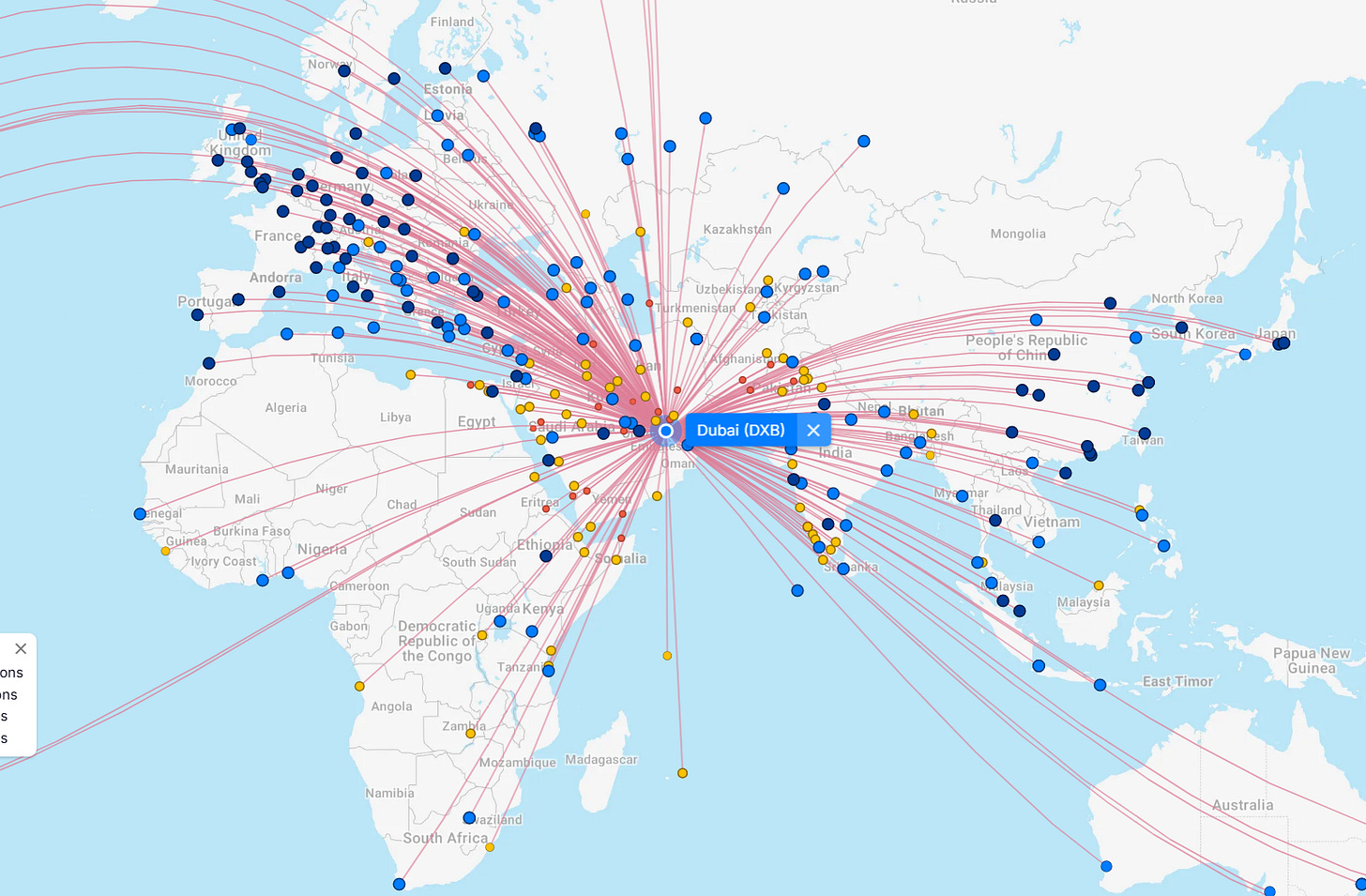
Cliché no. 7: Dubai is superficial
"I don't like Dubai... because it has no soul.
- But wait, are you an exorcist or something?"Fary, Montreux Festival
First of all, we need to agree on what superficial means.
When I'm told that Dubai is superficial, and I ask why, I'm usually told: "People are just there to show off their money" or "It's all concrete, it's prefabricated in the desert, it's got no soul, no interest."

Of course, if for you authenticity equals history, Dubai may not appeal, as it's a recent city. Then again, a few decades ago, it was an oyster-fishing village, where there was nothing.
So if that's what you think superficial is, then you're right. For my part, I don't find it superficial, just modern. A recent object, building or place can have a soul. Soul has nothing to do with age or modernity.
If you think Dubai is superficial because it's all about appearance, then yes, that's partly true... as it is in almost every place in the world. If you live in a small village deep in the countryside, perhaps this isn't the case, but in most big cities - Dubai included - part of the population does focus on appearance.
Dubai is a city of 3.5 million inhabitants. In such a metropolis, you can find whatever you want, including deeply authentic people, including places with a soul.
Cliché no. 8: Dubai isn't green
This is one of the most frequent criticisms levelled at Dubai.
People talk about its unbridled energy consumption, about things that are completely extravagant, like the big useless cars, or the world's biggest indoor ski slope, which is in the middle of the desert... It's largely true. At least, it used to be.
In 2006, the Emirates were named by the WWF as the worst country in the world from an ecological point of view (the United States coming second )28.
The government is aware of this problem and has chosen to tackle it head on. Today, Dubai's official goal is to be the city with the lowest carbon footprint in the world by 2050, and by that date, 75% of the electricity required by the city should come from renewable energy.
The Masdar City district, for example, was designed from the outset as a zero-emission, completely self-sufficient neighborhood.
Water and electricity prices, which were highly subsidized by the government at the outset, have now risen sharply to encourage people to save money.
The Dubai Electricity and Water Authority (Dewa) website is particularly well designed. Every month, we receive our water and electricity bill (in PDF format) and a visual comparison of our consumption with other similar apartments. And if we consume more than others, we get tips on how to save.
If you'd like to find out more about this policy, you can visit the official Dubai Carbon website.
So, yes, it's still a problem today: Dubai isn't the greenest city in the world, but the government is aware of this and is making huge investments to remedy the situation.
Dubai has a huge advantage in this respect: its sunshine, which provides an inexhaustible source of renewable energy.
In 2024, the country's first nuclear power plant was completed in Abu Dhabi: it is capable of supplying 25% of the country's energy needs, which will prevent the equivalent of the air pollution of 3.2 million cars a year29.
As for reproaching people living in the desert for using air conditioning - which I sometimes hear - it's like reproaching Finns for using heating in winter.
People sometimes say to me, "That's really stupid, they built Dubai in the middle of the desert." Dear friends, the Emirates are a desert. Where did you want the Emirates to build this city? Do you also blame the Norwegians for building cities in cold places that have to be heated later?
After a while, you just have to stop.
Cliché no. 9: Human rights
Let's move on to the hot topic of human rights.
Here again, it's a criticism that comes up very often: "Can you believe it, the Emirates, my God, their history in terms of human rights, it's really horrible."

What I propose is that together we read Amnesty International's report on the United Arab Emirates to pick out the main points, then compare it to other Western countries, including France30.
26 people in prison for calling for democratic reforms.
One of them, Ahmed Mansoor, has been in solitary confinement for 7 years31.
The death penalty is still in force, the last execution having taken place in 2017. There were four executions in the 2010s, for the rape and murder of a four-year-old in a mosque32 , one murder, one murder with terrorism33 , and the rape and murder of an eight-year-old34.
Do I approve of these facts? By no means. And I'm personally opposed to the death penalty in general, although I must confess that when I look at the cases of 2010, particularly the child rape cases, I don't necessarily feel like marching in the streets to defend abolition.
Now let's compare with the United States:
30 people still arbitrarily detained at Guantanamo for over 20 years without the benefit of a trial, most of them having been tortured, as we saw earlier in this series.
Restricting the right of assembly. Sixteen states have introduced 23 bills restricting the right to demonstrate, five of which have been passed in four states.
Excessive use of force. Police shot dead 1,153 people in 2023. Blacks were disproportionately affected by the use of lethal force, accounting for nearly 18.5% of deaths due to police use of firearms, despite making up around 13% of the population.
The death penalty is still authorized in 27 states (19 of which still have the capacity to apply it), as well as at federal level (which has, however, introduced a moratorium), and for certain military crimes. There were 24 executions in 2023, and 344 from 2010 to 202035.
For France:
Racist discrimination and attacks "all year round".
Unlawful attacks and killings: the French legal framework regulating the use of lethal force and firearms by law enforcement officials did not comply with international human rights law and standards.
Freedom of assembly: the authorities repeatedly imposed excessive, disproportionate and illegitimate restrictions on the right to demonstrate. A large number of demonstrators have been arbitrarily arrested, fined or had their equipment confiscated. In many cases, local authorities have banned demonstrations without examining other means of ensuring that they take place peacefully. In April, the Paris Administrative Court ordered the suspension of the latest in a series of orders imposing a general ban on demonstrations. The court ruled that the order constituted "a manifestly illegal infringement of the freedom to demonstrate", and that the ban appeared "neither necessary nor proportionate to the preservation of public order".
Mass surveillance: in preparation for the Olympic Games planned for Paris in 2024, Parliament has passed a new law authorizing the use of artificial intelligence-assisted mass video surveillance technologies by law enforcement agencies.
Unfair trial and degrading treatment: a man suspected of having committed a terrorist attack in 1980 and living in Canada was extradited despite serious doubts expressed by the Canadian judge as to the soundness of his case36 , and placed in solitary confinement for three years, before being cleared by the trial judges. He then returned to Canada, was retried and sentenced in absentia, in circumstances criticized by Amnesty International.
Anyway, my point is this. My point is that, yes, the situation isn't perfect in the Emirates, that's clear. But if you're waiting to find a perfect country that's 100% validated by Amnesty International, you can get up early.
And above all: do we have to agree with 100% of what the government of a country and its people do to live there?
In fact, there's a threshold: if you agree with only 20% of what a country's government does, for example, you probably won't want to go and live there. But if you agree with 80% of what the government does, you probably won't ask too many questions either.
For example, the mass surveillance and control that the Chinese government now exercises over its population, as we saw in previous articles, is so repulsive to me that I would never go and live in China under those circumstances.
And for those of you for whom this Amnesty report conditions your choice of country to live in, I hope you will remain consistent with your values and leave the infamous country of France (or elsewhere) to find a country stamped "Amnesty International".
You can have fun reading other reports on countries you like, and you'll see that very few states have nothing to reproach themselves for.
From what I've seen, Iceland doesn't come in for too much criticism. So if that's really an essential criterion for you, Iceland looks pretty good.
So the Emirates aren't perfect, it's true, but when it comes to Dubai, the criticism is exaggerated in relation to the facts.
Let's take another simple example, with another very fashionable destination among digital nomads: Thailand.
Hardly anyone criticizes people who go to Thailand, even though the country's human rights record isn't exactly stellar (read the report). In particular, the military wields considerable power, making it the fourth country in the world with the most military coups d'état37.
So, when it comes to human rights, the difference in treatment between the Emirates, Thailand and the United States is glaringly obvious, and has no rational basis whatsoever.
In conclusion
What we need to remember from all this is that, as is often the case, things are not black and white, but far more complicated than we hear in the media or from people who have never been to Dubai or have only stayed a few days.
Yes, Dubai is far from perfect. Yes, it's easy to dislike it for real, rational reasons. But no, it's not as black as you've been told.

Another important lesson is that single-country people have a lot of clichés about the world. And that's normal, because they only know their own culture and have very limited experience of the rest of the world. So they look at the world through a distorting lens, getting their information only from media that are themselves largely made up of single-country people.
Again, it's the same difference as between someone who has lived all his life in a village of 500 inhabitants, including 300 sheep, and someone who has lived all his life in a capital city of several million people.
The best way to get rid of these clichés is to stop being a mono-country and go and live abroad. Seeing for yourself the difference between general perception and reality is a fascinating experience, one that opens up your chakras and gives you a far greater ability to play your cards right.
Coming Soon :
In the next article, we’ll pull back the curtain on a strategy many digital nomads quietly use to stay free — combining a home base in a territorial tax country with a U.S. LLC to slash taxes, keep their name off public records, and run a global business with almost no paperwork.
Think of it as the “passport” to a borderless, low-tax life.
Stay tuned ! In the meantime, feel free to follow Disruptive Horizons on X/Twitter & Linkedin, and join the tribe of Intelligent Rebels by subscribing to the newsletter :
And here are the first articles of this series :
Dubai is located right between Asia and Europe, so stopping there for a few days is an excellent way to cut your jet lag in half: instead of having to endure a 6-hour time difference when traveling to Thailand, for example, you can spend three days in Dubai, enjoying the city while recovering from the 3-hour time difference, then head off to Thailand.
"Dubai's the Very Model of a Modern Mideast Economy", Bloomberg, 2018.
Oil contributed 24% to Dubai's GDP in 1990, and just 7% in 2004 - "Sand to Silicon", p. 11, Sampler & Eigner, 2008.
Rashid's Legacy, Graeme Wilson, 2006
World Shipping Council, 2022.
"Billion dollar gold market in Dubai where not all was as it seemed", Simon Bowers, The Guardian, 2014.
"The Diamond Industry and Blockchain: Dubai As The Meeting Point for Innovative Pairings", Richie Santosdiaz, 2021.
"Global Destination Cities Index 2019", Mastercard.
"Abu Dhabi's tentative bailout of Dubai ...", Brad W. Setser, Council on Foreign Relations, 2009.
"Women's Transport: Solutions Needed", Arab News, 2009
Nowadays. Alcohol consumption used to require a license. It was (very) easy to obtain, but a law passed in 2021 made this requirement obsolete.
"Couple sentenced for sex on the beach escape prison", France 24, 2008.
"Pope Francis arrives on historic visit to UAE", BBC, 2019.
"45 free zones in the UAE: Find the right one for your new business", Dona Cherian, Gulf News.
"Knowing and understanding the UAE Courts system: a comparison of the legal civil procedures between the DIFC and Dubai Court's systems", Alsuwaidi & Company, 2020. To be more precise, English law is not directly applicable, but where necessary (for example, where there is no DIFC precedent), English case law can be used.
"Local Partner Share contribution in the UAE: What You Need to Know", Legal Advice Middle East.
"Owning 100 per cent of an LLC - all you need to know about the new law announced", Huda Tabrez, Gulf News, 2021.
"What is 2 years employment visa Dubai, UAE price in 2024 Update", Connect Ressources, 2024
To be passed for every immigrant, as in every country in the world.
See footnote 20. Connect Ressources, op. cit.
See, for example, Tucker Carlson's interview with Telegram creator Pavel Durov in April 2024 for a concrete example.
"Forest area (% of land area) - United Arab Emirates", World Bank, 2023.
Same source, with details for each country (France - Canada).
This allows you to admire the magnificent wild flora and fauna, while the skyscrapers loom large on the horizon! The reserve is called Ras Al Khor Wildlife Sanctuary.
"Factbox: Why does the UAE have such a high carbon footprint?", Reuters, 2010
[REF A VERIFIER!!!] All these reports date from 2023.
He had been pardoned by the President following a first conviction, then condemned again following new actions.
"Child killer is executed by firing squad", Salam Al Amir, The National, 2011.
"UAE woman sentenced to death for killing US teacher", The Express Tribune, 2015.
"Man who raped, killed eight-year-old boy Obaida executed", Bassam Za'za', Gulf News, 2017.
"Facts about the Death Penalty," Death Penalty Information Center, 2024.
"Ontario Superior Court of Justice Robert Maranger, who presided over the hearing into Hassan Diab's extradition request, found the evidence against him to be "convoluted, very confusing" and to lead "to the conclusion that he is a murderer".
confused" and led to "dubious conclusions". He described the graphological report
highly open to criticism and discredit". Finally, he observed: "The case presented by the
French Republic against Mr Diab is weak; the prospect of a conviction in the context of a fair trial
fair trial seems unlikely." In its final decision in June 2011, it noted that the exceptionally low threshold
exceptionally low threshold of Canadian extradition law, however, left him no choice but to order
to order Mr. Diab's extradition." - Extract from the report "France: Resumption of baseless and flawed Hassan Diab prosecution undermines effective justice for victims of 1980 synagogue bomb attack", Amnesty International, 2023.
A list of previous coups in Thailand", Associated Press, 2006


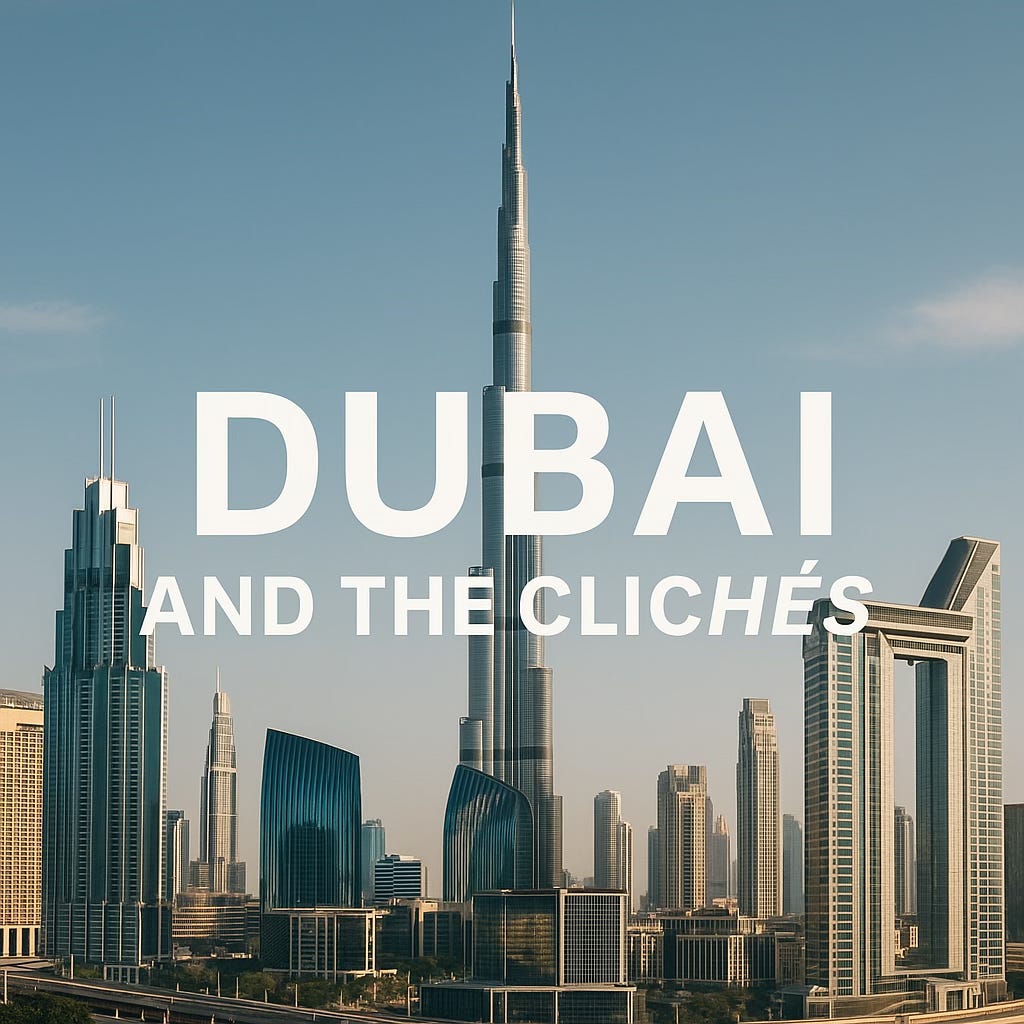
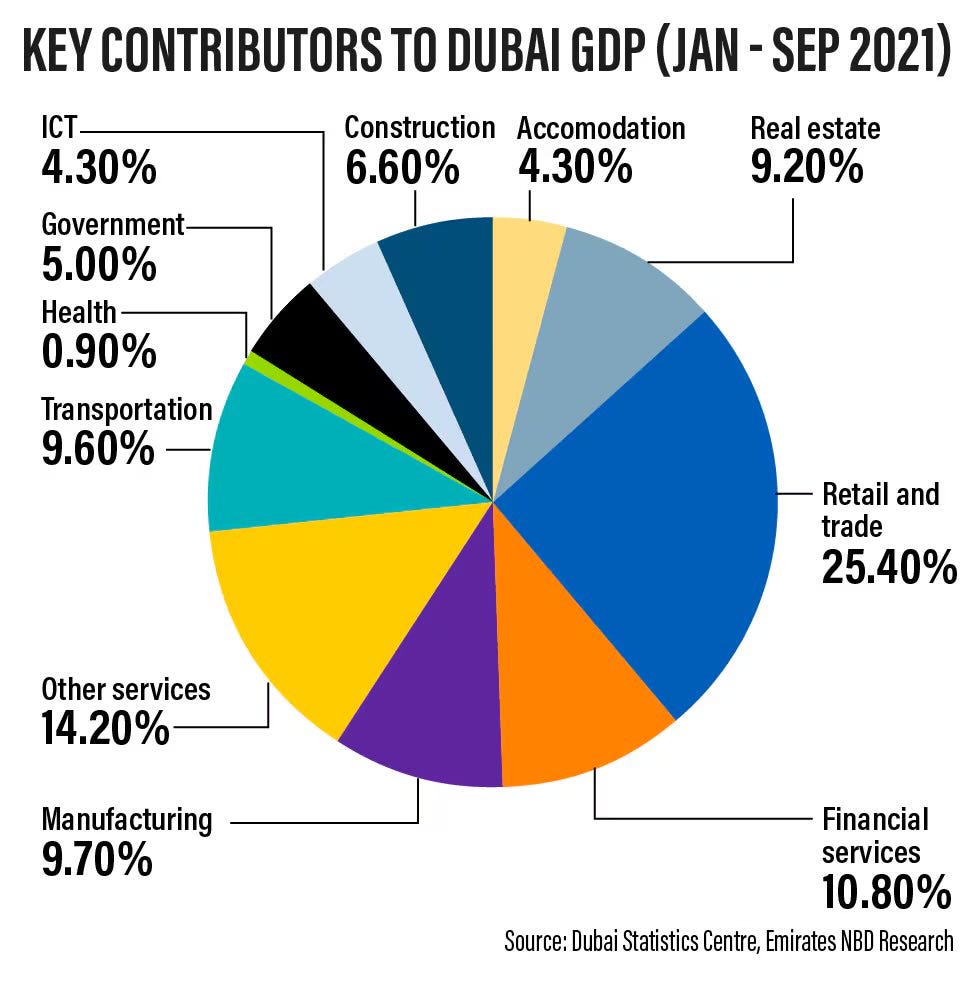

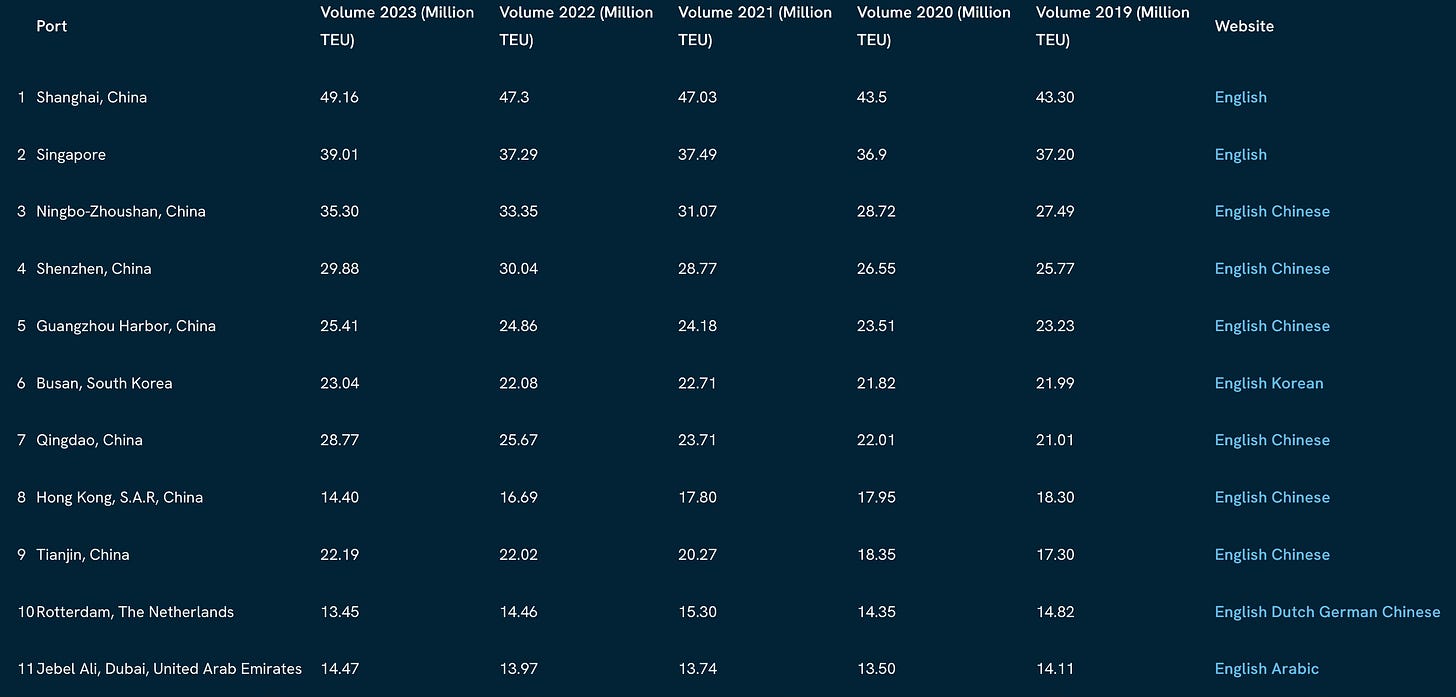
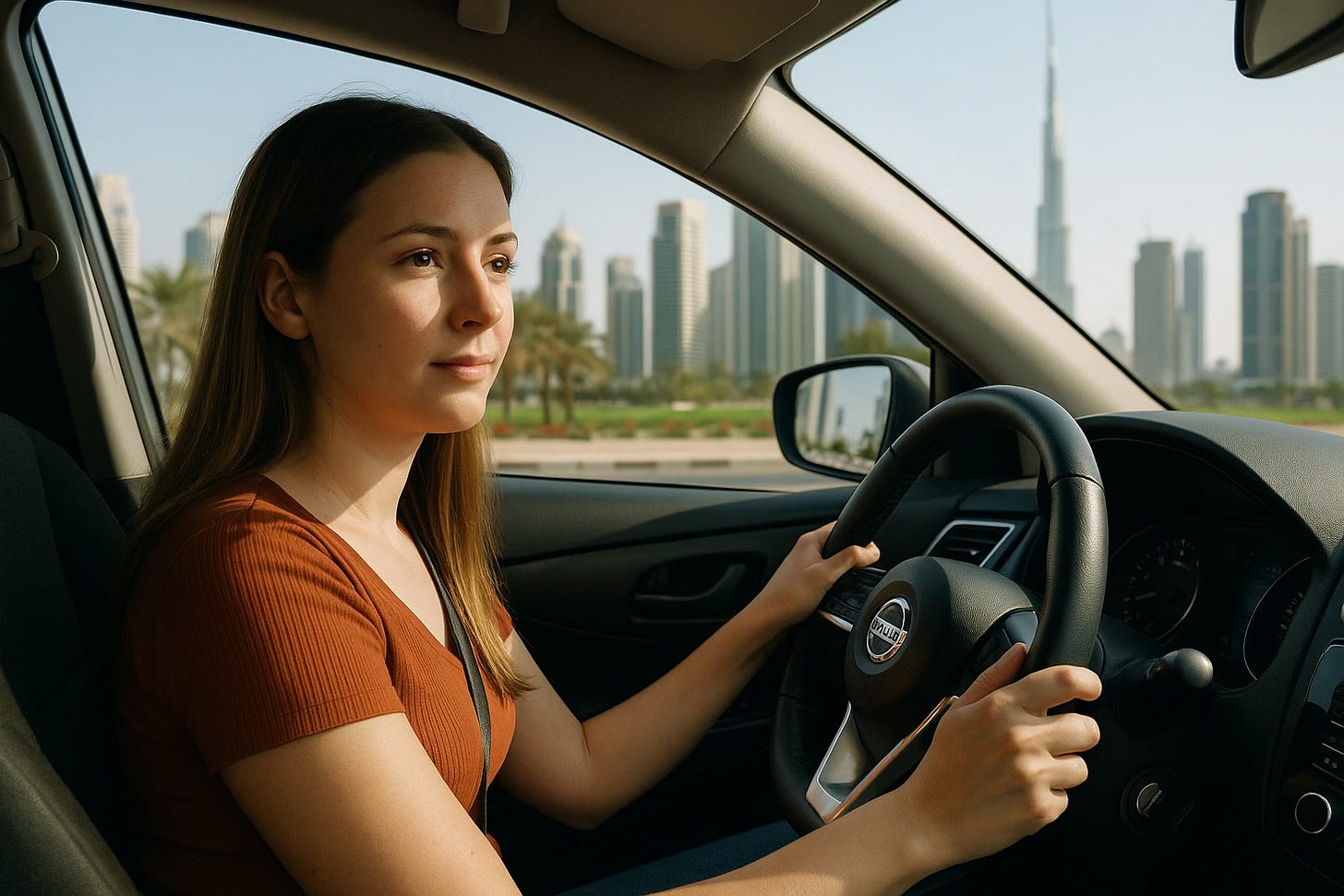
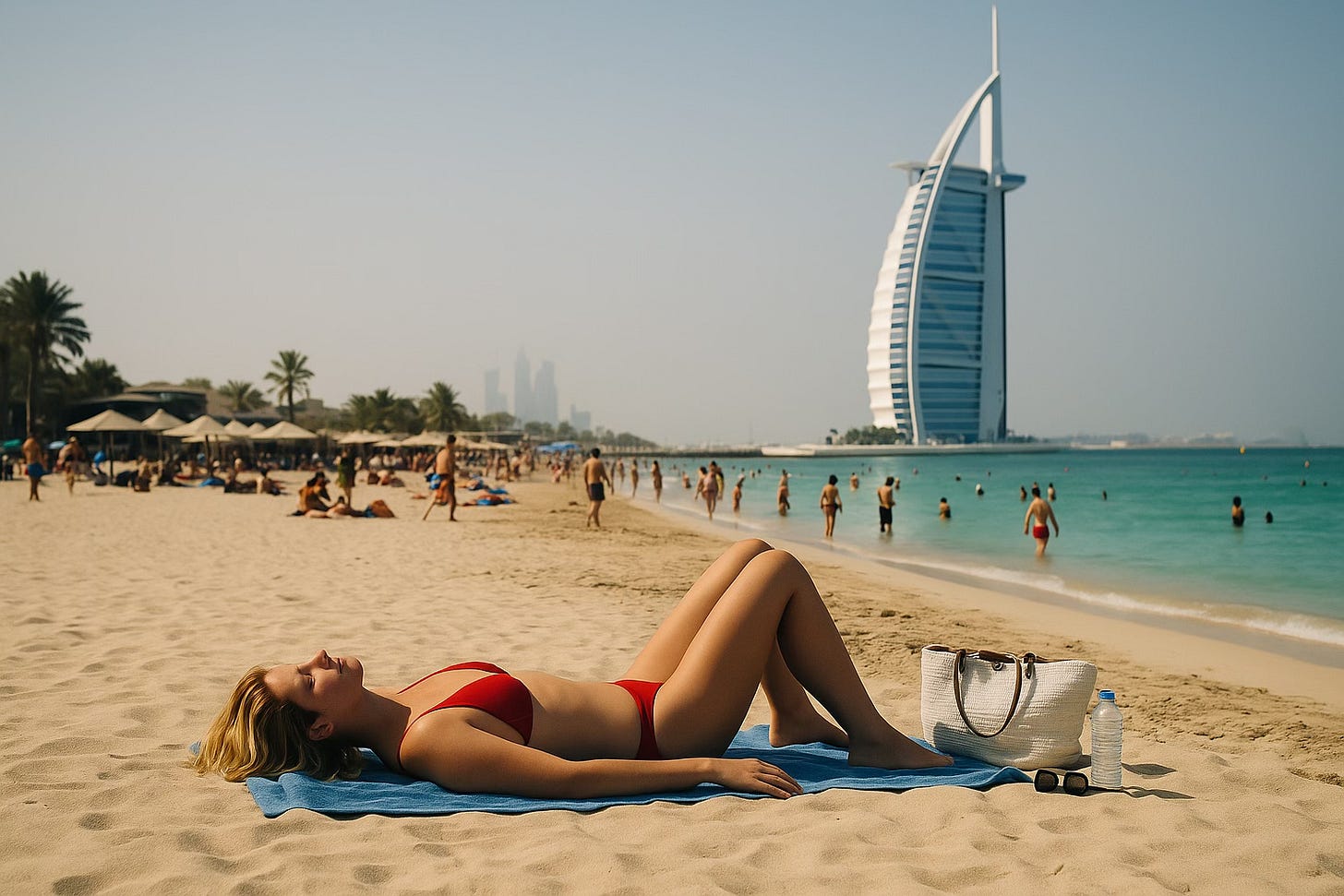
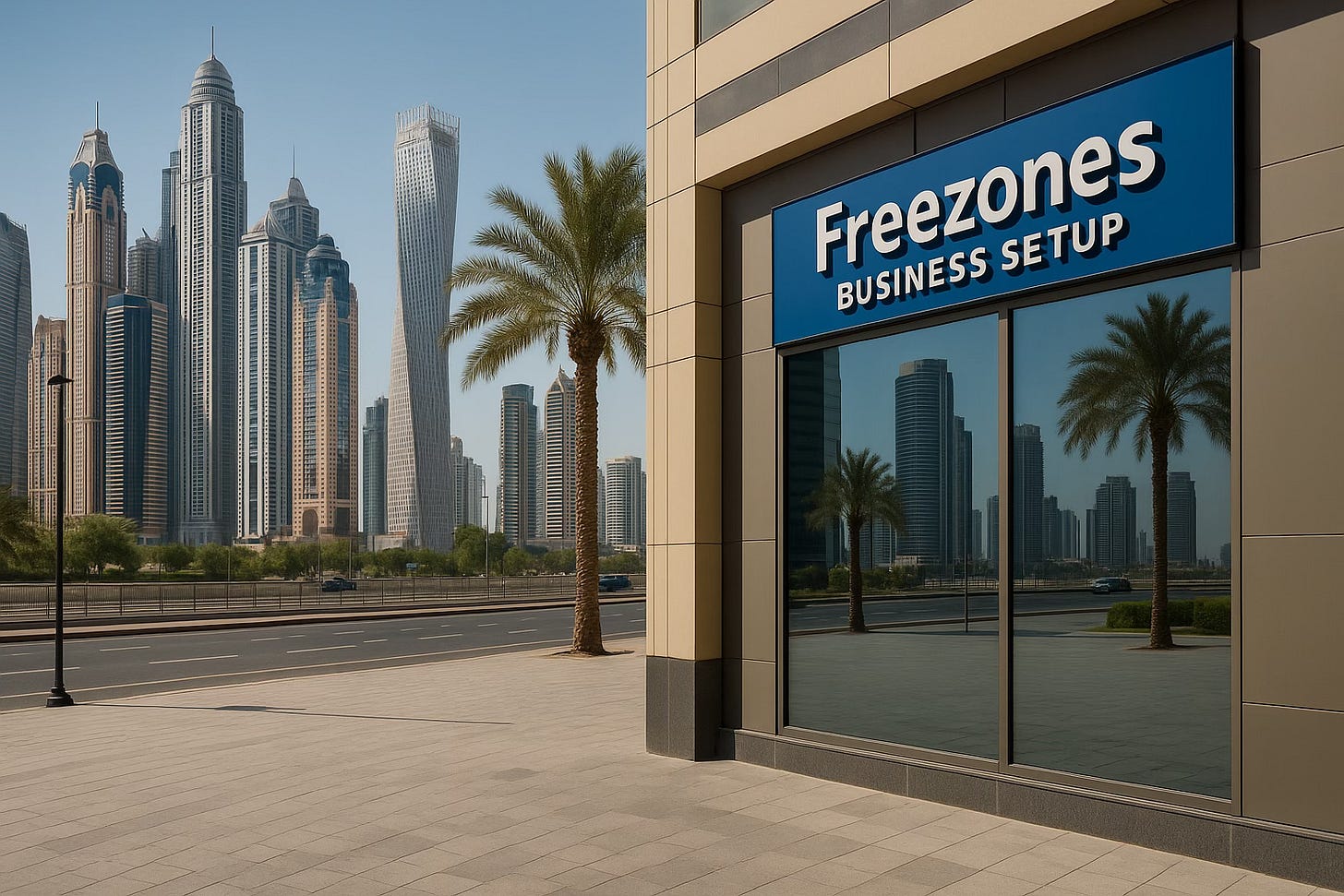


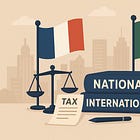




Great article! A few comments:
* Women's rights: the UAE has a "Gender Balance Council": https://www.gbc.gov.ae/
* Islamic law: In the past few years, nearby Abu Dhabi built a massive church ( https://en.wikipedia.org/wiki/St._Francis_Church,_Abu_Dhabi ), synagogue ( https://en.wikipedia.org/wiki/Moses_Ben_Maimon_Synagogue ), and Hindu temple ( https://en.wikipedia.org/wiki/BAPS_Hindu_Mandir_Abu_Dhabi ). There are kosher restaurants all over Dubai, and the local Jewish community might be one of the fastest-growing in the world.
* Free-trade zones: the new "One Freezone Passport" tries to unify them: https://economictimes.indiatimes.com/nri/work/dubai-introduces-one-freezone-passport-to-unify-free-zones-under-one-licence/articleshow/123357994.cms?from=mdr
* Nature: they've just announced the renovation of the Ras Al Khor reserve ( https://www.timeoutdubai.com/news/ras-al-khor-project ) and they plant 600 trees every day ( https://www.timeoutdubai.com/news/dubai-trees )
* Green: They'll open a new metro in a few years to reduce the use of cars: https://www.timeoutdubai.com/news/dubai-metro-blue-line-guide
Another "lie": "People only stay in Dubai a few years". I can't find data on that but I feel like this used to be true as your stay was linked to your job so you have to leave but with the golden visa you can self-sponsor and stay longer so I feel like people now buy a house, live there, have kids, etc. and the city is less "transient".
One "cliché" that is true though: air pollution. It's mostly due to desert dust and it's a very hard one to tackle...
This is total propaganda.